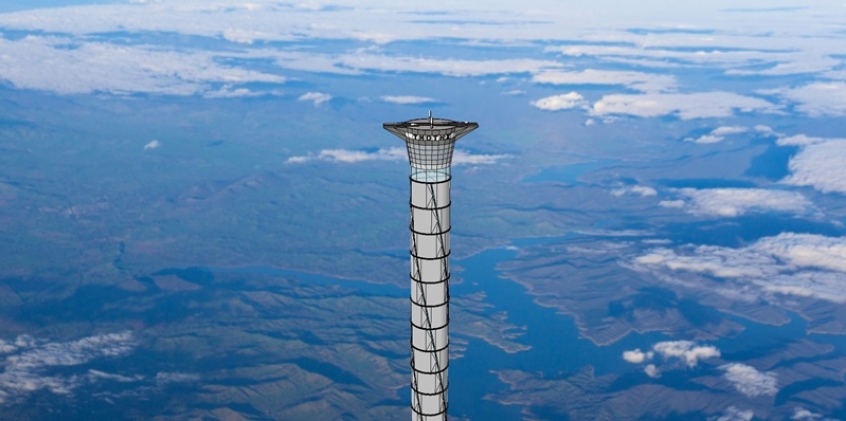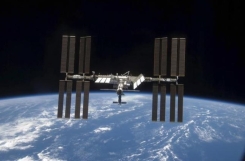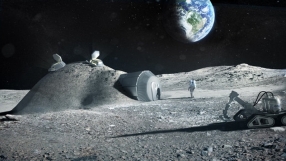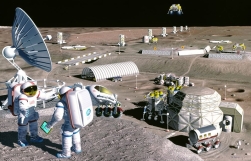
Fancy a holiday in orbit around Earth? This may become possible in the near future, with the holidaymakers simply riding a towering "space elevator."
The Canadian company Thoth Technology recently invented and secured a patent for this "space elevator," which is seen to pave the way for easier launching of astronauts, goods and eventually, tourists into orbit.
The elevator will be placed in a free-standing 12.4 mile-high tower, which will become the world's tallest structure once constructed.
The tower, which will be inflated and supported by a series of gas-pressurised cells, will also act as the docking platform for space planes that will carry satellites, cargo and tourists into lower orbit.
Thoth is eyeing to build a 0.9-mile-tall demonstration elevator as an initial step, before building the full 12.4 mile-high tower.
The Ontario-based firm envisions an elevator which can bring tourists to lower orbit in an hour, and which transport 10 tons of cargo at approximately seven miles per hour.
This ambitious project is seen to cost about $5 billion to build. York University engineering professor Brendan Quine, co-founder of Thoth Technology, said some firms have already expressed "intense interest" in the space elevator's patent rights.
"It could house hotels and restaurants that would provide the experience of being in space without the potential discomfort of zero gravity," Quine explained.
He further said that the "space elevator" can provide a cheaper alternative for conventional rockets bringing astronauts to outer space.
"Other inflated tower designs have been explored previously, but they typically use buttress designs or support cables that we believe [are] impractical," Quine said.
Graham Warwick, a managing editor at Aviation Week, meanwhile said the "space elevator," once built, will bring space closer to Earth.
"Single-stage-to-orbit from the ground has so far proved impossible and a true space elevator (stretching all the way into space) would be hideously expensive to construct if we knew how, so this is another way to do it," Warwick said.
"Once built — if built, and if it works — this would seem to offer easier, more routine access to space—for spacecraft and for people," he added.
















